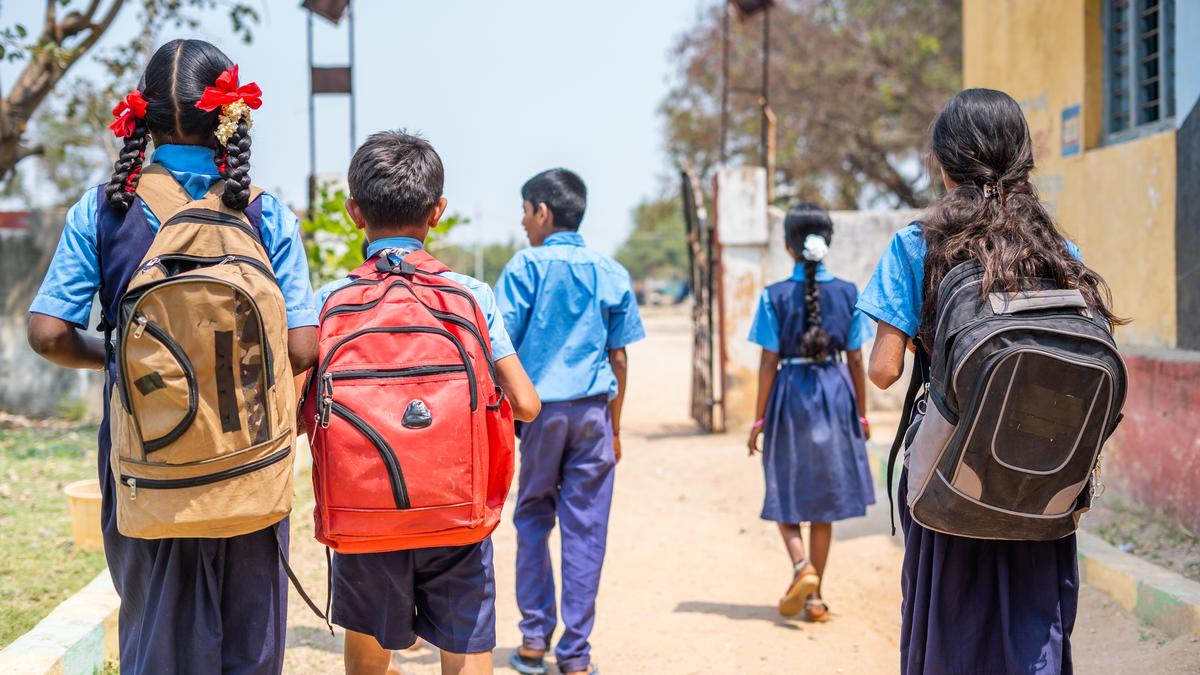



The 2025 PARAKH RS survey, covering 21 lakh students, reveals significant learning deficits, particularly in mathematics and science, across Grades 3, 6, and 9. While some states excelled, many districts lagged. These critical findings necessitate urgent reforms to strengthen foundational literacy, numeracy, and improve pedagogy to address widening learning gaps as students progress.

Copyright infringement not intended
Picture Courtesy: THE HINDU
The 2025 PARAKH Rashtriya Sarvekshan (RS) survey indicates learning deficits in students.
It is a national survey that measures what students know and understand. It was previously called the National Achievement Survey (NAS).
The Performance Assessment, Review, and Analysis of Knowledge for Holistic Development (PARAKH), an independent organization under the National Council of Educational Research and Training (NCERT), conducts this survey.
Authorities conducted this survey to get insights into student learning outcomes. The 2025 PARAKH RS specifically revealed significant learning deficits among students in Grades 3, 6, and 9.
What did the survey find for Grade 3 students?
Language => 67% of students effectively use and guess new words for daily interactions. 60% can read short stories and understand their meaning independently, identifying characters, storylines, and the author's message. 61% can read and understand short news items, instructions, recipes, and publicity materials.
Mathematics => 68% of students can sort objects into groups based on multiple features. 69% can identify and extend simple patterns in their surroundings. 58% perform addition and subtraction of two-digit numbers, and 54% recognize multiplication as repeated addition and division as equal sharing.
What did the survey find for Grade 6 students?
Mathematics => Only 54% can represent numbers using the Indian number system's place value structure and read very large numbers. Just 38% can solve daily-life problems involving one or more operations on whole numbers. 42% can estimate distance, length, time, perimeter, area, weight, and volume.
Environmental Studies => About 44% of students can observe and identify natural (insects, plants, birds, animals, geographical features) and social (houses, relationships) components in their immediate environment.
What did the survey find for Grade 9 students?
Social Science => 45% of students can explain how the Constitution was formed and understand the ideas from the Indian national movement and India's heritage.
Mathematics => Only 31% can explore and understand number sets like whole numbers, fractions, integers, rational numbers, and real numbers, along with their properties. 28% apply percentage calculations effectively, and 31% apply fractions in daily-life situations.
Science => 37% of students observe and explain phenomena caused by differences in pressure, temperature, and density (e.g., breathing, sinking-floating, winds). However, only 34% distinguish the characteristics of living organisms (nutrition, growth, respiration, reproduction) from non-living things.
Overall Top Performers => Punjab, Himachal Pradesh, Kerala, Dadra Nagar Haveli and Daman & Diu, and Chandigarh emerged as the best performing states and union territories in school education.
Grade 3 => Punjab, Himachal Pradesh, and Kerala led the performance.
Grade 6 => Kerala, Punjab, and Dadra Nagar Haveli and Daman & Diu were the top performers.
Grade 9 => Punjab, Kerala, and Chandigarh showed the best performance.
Strengthen Foundational Skills => Authorities must strengthen foundational literacy and numeracy in primary education, to ensure children build a solid base in reading, writing, and basic math from an early age.
Improve Teaching and Training => The quality of teaching methods and teacher training must improve, especially in underperforming regions.
Use Early Assessment Tools => Schools need to integrate formative assessment tools, to detect learning gaps early on, allowing teachers to intervene and provide support before problems become too big.
Rethink School Curricula => Education authorities should reorient school curricula to encourage critical thinking and contextual understanding, to move away from rote learning towards a deeper, more practical understanding of subjects.
Source:
|
PRACTICE QUESTION Q. "Vocational education is crucial for enhancing employability and promoting economic growth." Critically analyze. 150 words |




© 2026 iasgyan. All right reserved